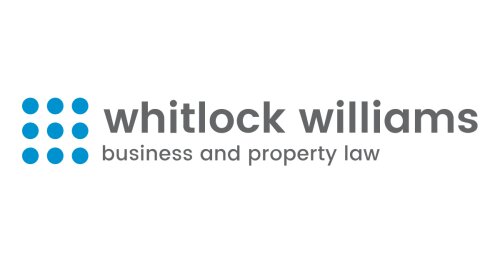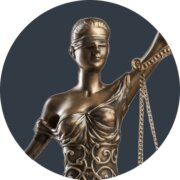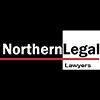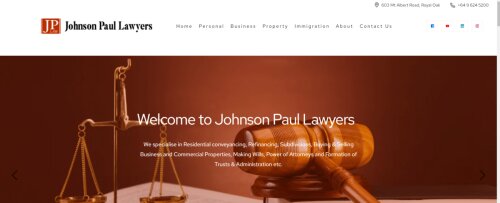Best Communications & Media Law Lawyers in Auckland
Share your needs with us, get contacted by law firms.
Free. Takes 2 min.
List of the best lawyers in Auckland, New Zealand
About Communications & Media Law in Auckland, New Zealand:
Communications & Media Law in Auckland, New Zealand pertains to the legal regulations governing the telecommunications, broadcasting, advertising, and digital media industries. These laws ensure that media outlets operate ethically, protect freedom of speech, and safeguard individuals' privacy rights. Understanding these laws is essential for individuals and businesses involved in producing or disseminating media content.
Why You May Need a Lawyer:
You may need a lawyer specializing in Communications & Media Law if you encounter issues such as defamation, copyright infringement, privacy breaches, breach of contract, or regulatory compliance violations in the media sector. A lawyer can provide expert advice, represent you in legal proceedings, and help you navigate complex media laws to protect your rights.
Local Laws Overview:
In Auckland, New Zealand, the key aspects of Communications & Media Law include the Broadcasting Act, the Harmful Digital Communications Act, the Copyright Act, and the Privacy Act. These laws regulate broadcasting standards, online content, intellectual property rights, and data privacy, respectively. Understanding how these laws impact media operations is crucial for complying with legal requirements and avoiding legal disputes.
Frequently Asked Questions:
1. What is defamation, and how does it apply to media law?
Defamation is the act of making false statements that harm a person's reputation. In media law, defamation can occur through libel (written statements) or slander (spoken statements). Media outlets can be held liable for defamation if they publish or broadcast defamatory content.
2. What are the implications of copyright infringement in media law?
Copyright infringement occurs when someone uses copyrighted material without permission. In media law, using copyrighted works without authorization can lead to legal action, financial penalties, and the removal of infringing content. It is crucial for media professionals to understand copyright laws to avoid infringing on others' intellectual property rights.
3. How does the Privacy Act protect individuals in media law?
The Privacy Act regulates the collection, use, and disclosure of personal information. In media law, this law ensures that individuals' privacy rights are respected when their personal information is used in media content. Media organizations must adhere to privacy regulations to safeguard individuals' data and prevent privacy breaches.
4. What are the key regulatory requirements for broadcasting in Auckland?
The Broadcasting Act sets out regulatory requirements for broadcasting content, including standards for accuracy, fairness, and decency. Media organizations must comply with broadcasting regulations to ensure that their content meets ethical and legal standards. Violating broadcasting laws can result in fines, penalties, and loss of broadcasting licenses.
5. How can a lawyer help with compliance issues in media law?
A lawyer specializing in Communications & Media Law can provide legal guidance on regulatory compliance, draft contracts and agreements, handle disputes with third parties, and represent clients in legal proceedings. By seeking legal advice, individuals and businesses can ensure they comply with media laws and protect their interests.
6. What are the legal implications of social media usage in media law?
Social media usage raises legal issues related to privacy, intellectual property, defamation, and user rights. Media organizations and individuals using social media platforms must adhere to legal obligations, such as avoiding defamatory statements, respecting copyrights, and protecting user data. Understanding the legal implications of social media usage is crucial for staying compliant with media laws.
7. How does the Harmful Digital Communications Act regulate online content?
The Harmful Digital Communications Act addresses cyberbullying, harassment, and other harmful online behaviors. In media law, this act aims to protect individuals from online abuse and provides legal remedies for victims of harmful digital communications. Media organizations must be aware of the act's provisions to prevent and address online harm effectively.
8. What role does the Advertising Standards Authority play in media law?
The Advertising Standards Authority (ASA) is an industry self-regulatory body that oversees advertising standards in New Zealand. In media law, the ASA ensures that advertising content is truthful, ethical, and does not mislead consumers. Media organizations must comply with the ASA's guidelines and rulings to maintain integrity in advertising practices.
9. How can I protect my intellectual property rights in media law?
To protect your intellectual property rights in media law, you can register copyrights, trademarks, and patents for your creative works and inventions. By asserting your intellectual property rights, you can prevent others from using your content without permission and seek legal remedies for infringement. Consulting a lawyer specializing in intellectual property law can help you safeguard your rights effectively.
10. What should I do if I encounter a legal dispute related to media content?
If you encounter a legal dispute related to media content, such as defamation, copyright infringement, or privacy violations, it is essential to seek legal advice promptly. A lawyer specializing in Communications & Media Law can assess your case, provide legal options, and represent you in negotiations or court proceedings. Taking proactive steps to address legal disputes can help protect your rights and mitigate potential legal consequences.
Additional Resources:
For more information on Communications & Media Law in Auckland, New Zealand, you can refer to the Ministry for Culture and Heritage, the Broadcasting Standards Authority, the New Zealand Media Council, and legal publications specializing in media law. These resources can provide valuable insights, guidelines, and updates on regulatory developments in the media sector.
Next Steps:
If you require legal assistance in Communications & Media Law in Auckland, New Zealand, it is advisable to consult a qualified lawyer with expertise in this field. A lawyer can assess your situation, provide personalized advice, and represent your interests in legal matters related to media content. By seeking legal guidance, you can navigate complex media laws effectively and protect your rights in the rapidly evolving media landscape.
Lawzana helps you find the best lawyers and law firms in Auckland through a curated and pre-screened list of qualified legal professionals. Our platform offers rankings and detailed profiles of attorneys and law firms, allowing you to compare based on practice areas, including Communications & Media Law, experience, and client feedback.
Each profile includes a description of the firm's areas of practice, client reviews, team members and partners, year of establishment, spoken languages, office locations, contact information, social media presence, and any published articles or resources. Most firms on our platform speak English and are experienced in both local and international legal matters.
Get a quote from top-rated law firms in Auckland, New Zealand — quickly, securely, and without unnecessary hassle.
Disclaimer:
The information provided on this page is for general informational purposes only and does not constitute legal advice. While we strive to ensure the accuracy and relevance of the content, legal information may change over time, and interpretations of the law can vary. You should always consult with a qualified legal professional for advice specific to your situation.
We disclaim all liability for actions taken or not taken based on the content of this page. If you believe any information is incorrect or outdated, please contact us, and we will review and update it where appropriate.















